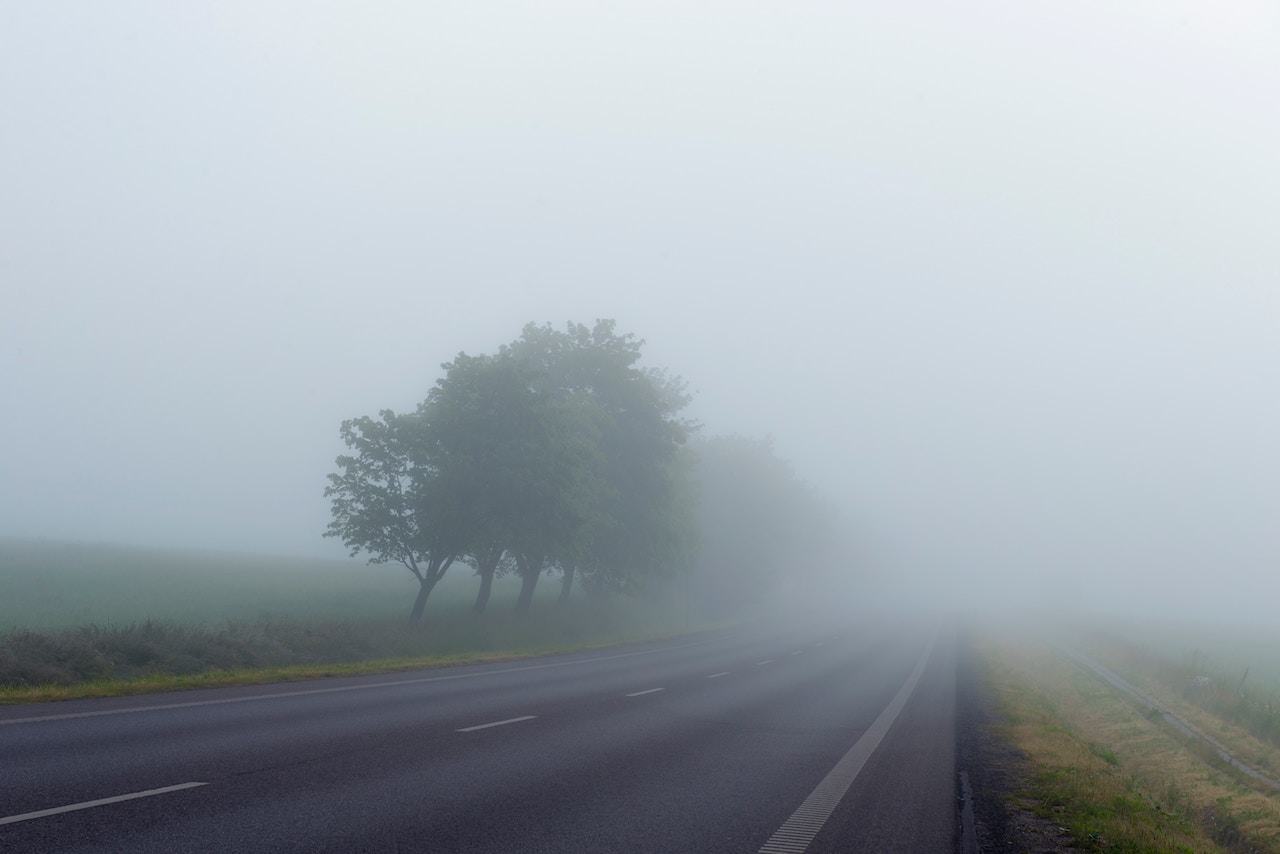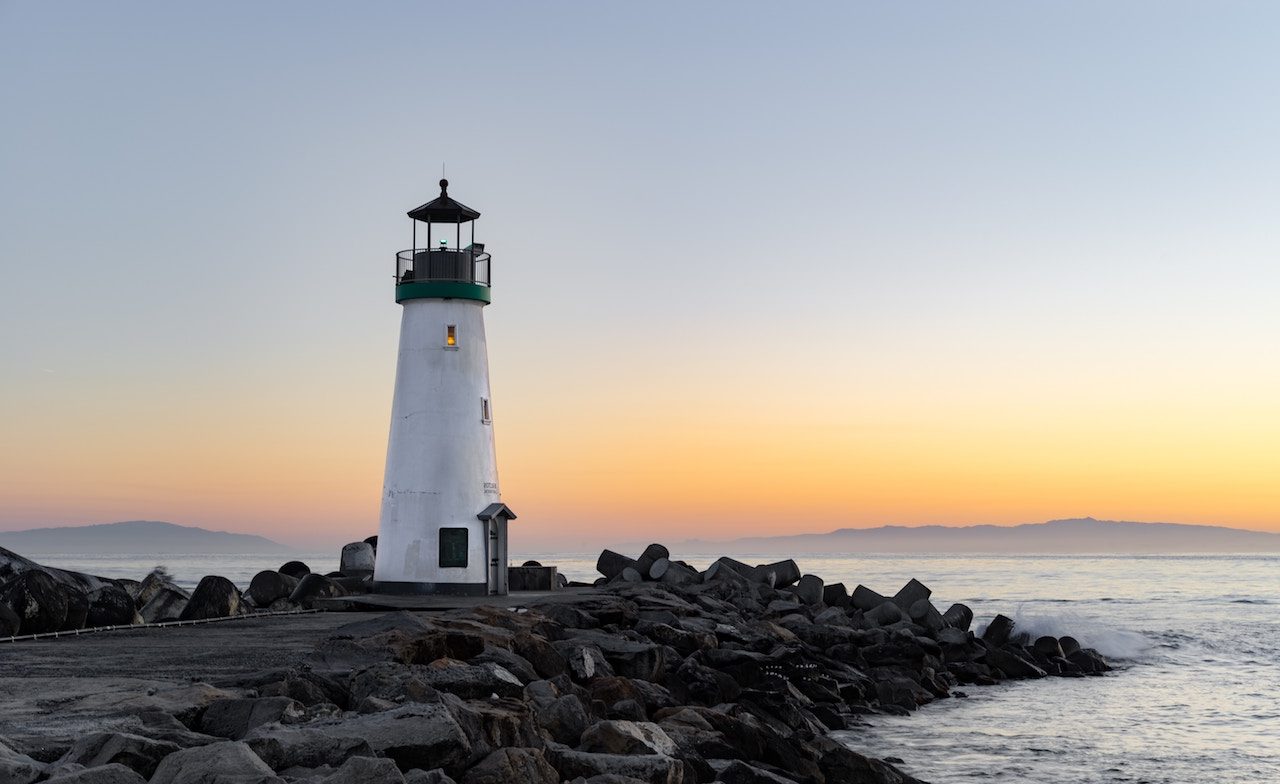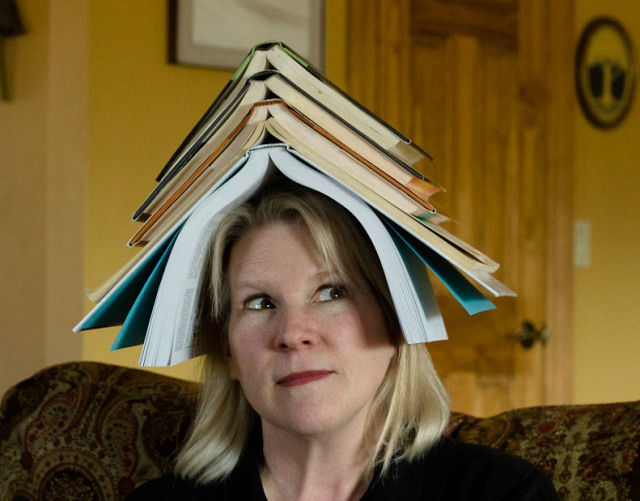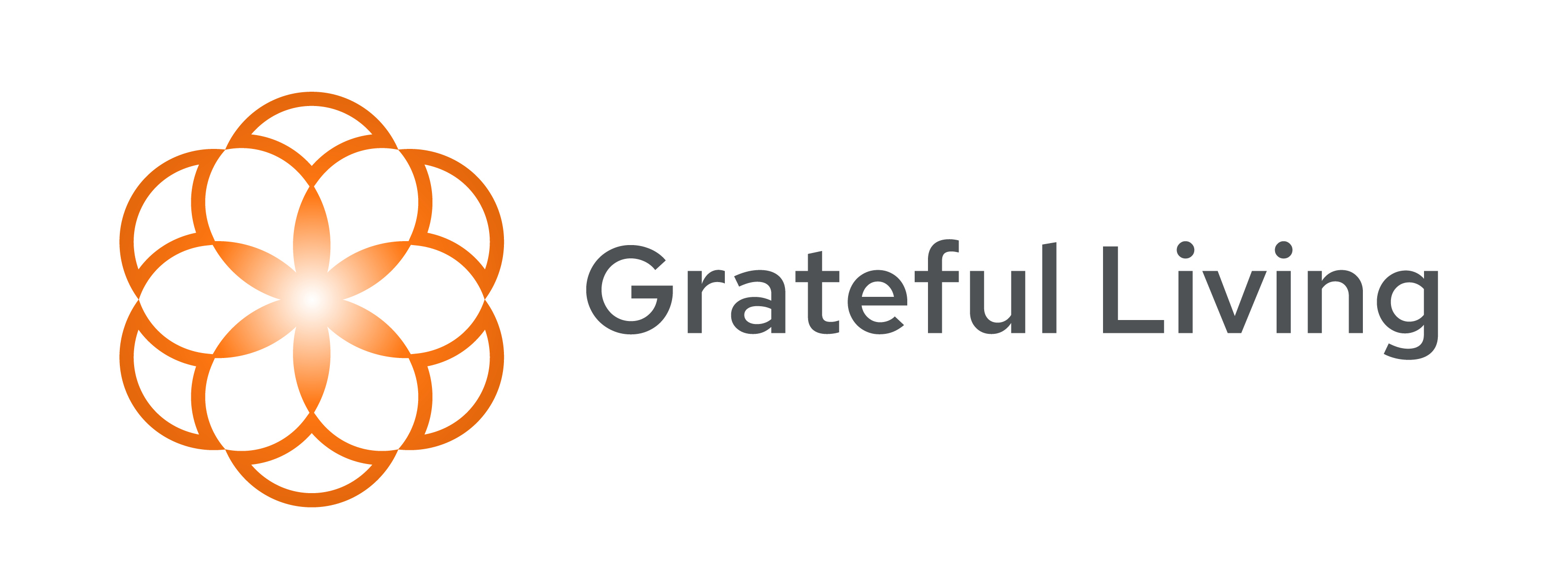We drove on through the dark, he and I, talking and laughing and pretending we were piloting a ship through the waves.
Living beyond the boundaries of streetlights, I often drive on dark country roads where fog hides in the hillsides. Sometimes only tendrils of mist reach up from the ground. More often I’m engulfed in clouds so heavy that the road is obscured. Straining to see the turns on these narrow lanes, I’m not stressed. I smile. I’m thinking of my father.

“People call this kind of heavy fog ‘pea soup,’” my father had explained to me when I was a first grader, even as he leaned intently over the steering wheel.
“But it doesn’t look like soup to me. What would you call it?”
Beyond our windshield it looked like a white wall as our headlights reflected off the water vapor. His voice remained cheerful.
He told me about being a radar man in the Navy and described the sound of foghorns.
“What we’re going to do, Honey, is blow the car horn to let other cars know we’re coming. It’ll be our foghorn. That way we can navigate our way out.”
We drove on through the dark, he and I, talking and laughing and pretending we were piloting a ship through the waves. Before each bend he gave a blast on the car horn. It was delicious to me—my daddy taking part in a giant game of pretend. And better yet, engaging in the forbidden act of making noise, waking up the night to say we’re here.
My father never let on that the ride that night was dangerous, or that the prattling of a little girl was hard on his concentration.
Although his own childhood was marred by the early death of his father, his mother’s chronic illness, and the hard work that comes with poverty he overcame those limitations. He went on to a career as a public school teacher where he helped hundreds of other children find the best in themselves.

I know he had a way of making me feel important, no matter the task. Once when I wanted to help him install a hot water tank, he didn’t let on that an eight-year-old would be in the way. Instead he said what he really wanted was for me to read him some poetry because that would make a difficult job more pleasant. He put me safely on a stool a few feet away where I read aloud from a junior book of verse while he wrestled with the chore. Occasionally he sat back on his heels in appreciation at the end of a poem. He talked about discovering the great poets when he got to college, even described the large brown book he’d saved from a literature class for his own children to enjoy some day. When he was done, he said he couldn’t have done it without me, the same thing he always said.
He never found that big book of poetry he’d hoped to share. But my father gave me something more precious. Complete acceptance. And when a girl has that kind of love from her father, she carries with her the self-assurance to transcend any boundaries.
My dad always shrugged off flowery praise. So each year when Father’s Day rolled around I bought a blank card. Inside I wrote him a fond memory of my childhood and how that resonated in my often challenging life. He always got a kick out of it.
This is my first Father’s Day without him. If I could, I’d tell him, “I couldn’t have done it without you.”

Laura Grace Weldon is the author of two poetry collections, Tending and Blackbird, plus a handbook of alternative education titled Free Range Learning. Her background includes editing books, leading nonviolence workshops, writing poetry with nursing home residents, facilitating support groups for abuse survivors, and teaching classes in memoir and poetry. She lives with vast optimism on a small farm where she’d get more done if she didn’t spend so much time reading library books, cooking weird things, and singing to livestock. Connect with her at facebook.com/laura.euphoria or at lauragraceweldon.com. This story originally appeared in Wired.
